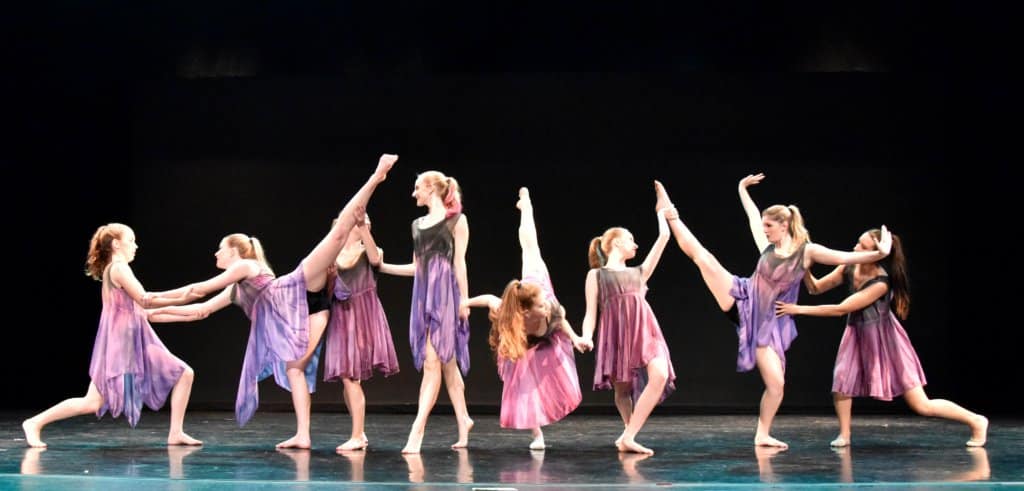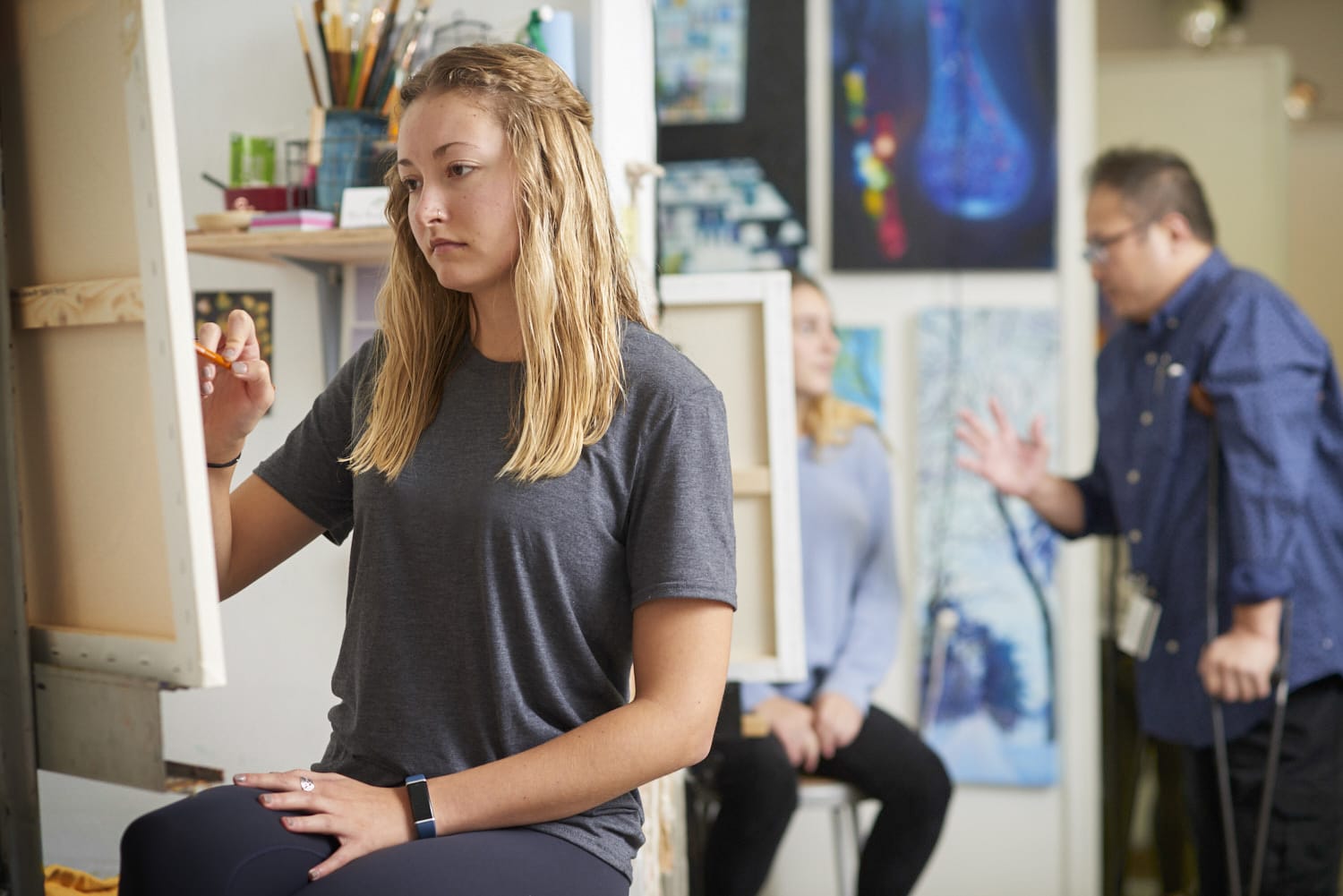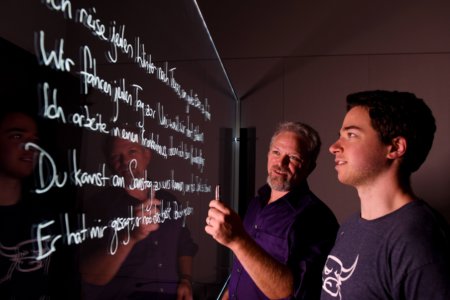In 2020 alone, the media and entertainment industry reeled in US$2 trillion across the globe and some US$500 billion in the US. Now that things are picking up for media markets, there are endless opportunities for aspiring artists to thrive, something that many higher education institutes are beginning to realise.
Nestled in “Maryland’s Coastal College Town,” however, lies a public university that has been helping students find their own voices through a wide range of excellent visual and performing arts programmes since 1989. Salisbury University’s Fulton School of Liberal Arts is a pioneer when it comes to providing an outstanding US liberal arts education. Outcomes prove this: Nine students earned the prestigious Fulbright Student Award for the 2022-23 academic year. Lecturer and sculpture technician Laura West was also awarded a Fulbright grant to conduct research at the West University of Timișoara.
Little wonder Salisbury was named one of the US’s best colleges by The Princeton Review — its strategic location, state-of-the-art facilities, diverse student body, award-winning and dedicated faculty members, and extensive offerings lead to promising graduates and stellar results. Class of 2020 music and theatre major Jay Copeland, for example, made the Top Seven on American Idol whereas six voice students from the Music Programme received awards or honours in the annual National Association of Teachers of Singing (NATS) Student Auditions.

At the Music, Theatre and Dance Department, students are discovering their personal artistry, Source: Salisbury University
How is this possible? For starters, the Music, Theatre and Dance Department fosters an environment that encourages innovative performances and designs so students can discover their personal artistry. They also have the chance to work one-on-one with faculty mentors such as Blake Harris, an assistant professor of the Theatre Programme. According to Harris, lecturers work with each student to determine where their talents and academic interests lie.
“Our course focuses on creating individualised experiences for students. We do not want to turn you into someone you are not; rather, we train you to live up to the fullest potential of the artist you can become,” says Harris. “One of our most exciting modules is Devising Theatre, a course in which students get to create a group-generated performance by the end of the term. The students are guided through a process of developing actions, texts, and characters that will result in an original and relevant performance performed at the end of the term.”
What’s unique about the Music, Theatre, and Dance programmes is that they all have specialised tracks (Traditional, Instrumental Performance, Music Technology, Vocal Performance, Teacher Certification, Design and Production, and Performance, Dance minor, Music minor, Music Production minor, and Theatre minor), so that students can focus on a niche.
The Art Department functions in a similar vein — the Art BA programme includes tracks in Art History, Two-dimensional Studio, Three-dimensional Studio, and Visual Communications whereas the Art BFA programme has tracks in Ceramics, Drawing, Graphic Design, Hot Glass, New Media, Painting, Photography, and Sculpture.
“All of the Studio Art classes involve an understanding and awareness of the world we live in,” said art professor Jinchul Kim, an award-winning painter himself. “Students are learning to apply the fundamental process of picture-making by exercising powers of visual perception in painting and drawing. Students demonstrate their confidence in media for their artistic expression.”

Salisbury students live up to the fullest potential of the artist they can become. Source: Salisbury University
Learning opportunities don’t just stop there — Salisbury students can gain first-hand experience that prepares them for the future, whether that is in graduate school or in their careers. Through intense studio experiences, student exhibitions, Career Connections, and talks by visiting professionals, arts and fine arts students go on to attend internationally recognised MA or MFA programmes around the world. Faculty say such opportunities help students develop their vision and identity.
Art BFA major Aita can attest to this: “The professors we have right now are active artists. While working with them, we get to experience what life will be like out in the world. I was working with a faculty member for a year and did an internship, and was hired to work with them afterwards. Once the show came up, I was given the opportunity to fly out to Colorado Springs and help him install.”
For Music graduate Todd, the programme made him feel like he had found a second family. He described the students and faculty members as “a group of people that can help you achieve what you really wish to do”.
He agrees with Alec. “These professors have had international careers as conductors, as soloists, as small ensemble members,” he says.
Indeed, the satisfactory student experience at Salisbury is what makes it a hotspot for budding artists. “If you have the motivation to seek out and pursue an undergraduate experience second to none, you can get it here at Salisbury University,” said Maarten Pereboom, Dean of the Fulton School of Liberal Arts. “You will have faculty here who support you.”
As they often say at Salisbury University, apply today to make tomorrow yours.
Follow Salisbury University on Facebook, Twitter, LinkedIn, Flickr, YouTube, and Instagram.












